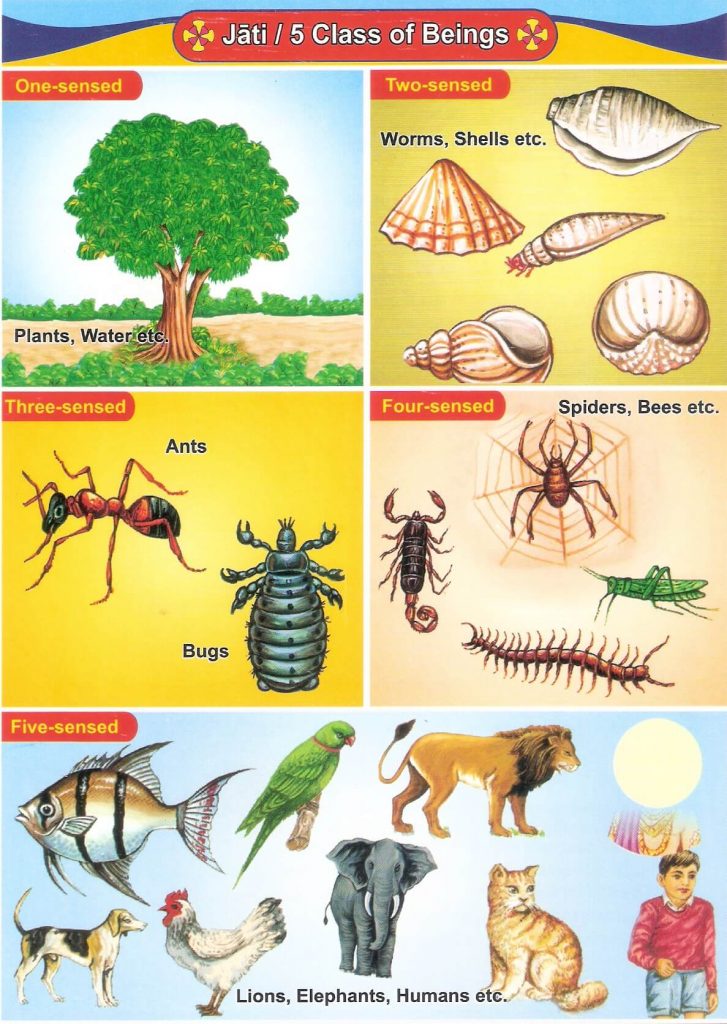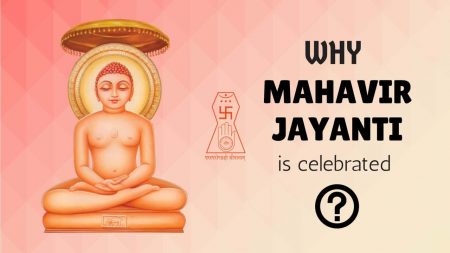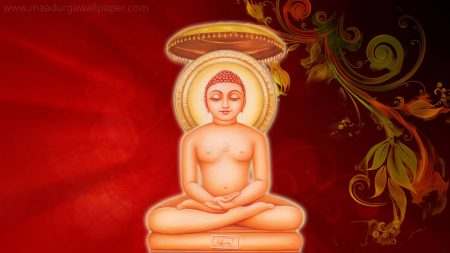Jain Vegetarianism – Why Jains are vegetarians? Why Jains do not eat root vegetables like potatoes, onion, brinjal, garlic, etc.
Ahimsa:
According to Jainism,
“Ahimsa Parmo Dharma (Non-violence is supreme religion)”
The foundation of Jainism is based on the principle of Ahimsa or Ahinsa (non-violence). In Jainism, violence is prohibited in any form. It is believed that any act of violence creates bad karma. And one should prevent the accumulation of such karma. If one wants to get liberation from the cycle of births, then one should practice non-violence.

Being vegetarian or more precisely Lacto vegetarian (excluding eggs) is a part of practicing non-violence in the daily life of Jains. In Jainism, out of the five types of living beings, a householder is prohibited to kill, intentionally, all except the lowest ( such as vegetables, herbs, cereals, etc.).
Food Practice in Jainism:
Jains believe that we should only eat that much amount of food which is inevitable for survival. So that violence against plants can be minimized.

- Strict Jains, mainly ascetics exclude potatoes and other root vegetables (such as onions, roots, and tubers). Tiny organisms are injured, when a plant is pulled up. Also, a bulb or tuber’s ability to sprout is seen as a characteristic of a living being.
- Eating flesh (meat) is strictly prohibited in Jainism.
- Eating terrestrial fruits and vegetables is not considered an act of violence. Because it does not kills the plants. These plants live on after plucking the vegetables.
- Honey is not used as its collection is seen as violence against the bees.
- Mushrooms, fungus, and yeasts are also forbidden in Jainism. These grow in non-hygienic environments & may support other life forms.
- According to Jain texts, a householder shouldn’t consume the five udumbara fruits. The five udumbara trees are Gular, Anjeera, Banyan, Peepal, and Pakar, all belonging to the fig class.
- Jains do not consume fermented foods (alcohols). It includes the killing of a large number of microorganisms during the fermenting process.
(Also Read: Why is Ganga River considered pure and holy in India?)
Strict Jains do not take food after sunset or at night (just before sleeping):
Eating food at night or after sunset may involve violence against tiny organisms. These may get into the food in the absence of light. There is a scientific reason for this as well.
Our body takes 3 to 4 hours to digest the food. When we eat just before sleep, our body supplies a large volume of blood to the stomach for proper digestion of food. Due to this, the body is not able to heal itself properly during sleep.
Also, food that is stored overnight is not consumed by stern Jains. It contains a higher concentration of microorganisms (bacteria, yeast, etc) as compared to food prepared on the same day.
Conclusion:
Vegetarianism in Jainism may sound like a bit too much. How can we protect microorganisms which we can’t even see with our naked eyes? But here, most of the people miss the point.
Actually, it is not about being too strict or stern. Yes, you may find it very difficult to follow at first. But the point is to minimize the violence as much as you can.
It is not necessary to follow everything that has been said. But one must acknowledge the fact that killing other living beings irrespective of their size is not a good practice.
We are closely connected with every living organism on this planet, whether it is a human being or an animal. And if you kill someone, just for your pleasure and taste, then you must remember that you are killing a part of yourself too.
It is our duty to protect the life of other living beings or organisms as much as we can. Then only we will be able to live peacefully, without any burden.
“Because remember protecting nature and its subjects is protecting yourself.”
So what do you think about being a vegetarian? Or are you still happy being a nonvegetarian? Please share your views in the comment section below.






